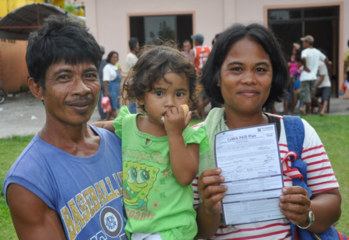Context
The partner countries Philippines, Viet Nam and Indonesia are increasingly affected by climate change, ranking 33rd, 3rd, and 18th, respectively, among the 171 most at-risk countries (World Risk Report 2017). With the agricultural sector as their main source of employment, these countries are home to the extremely poor, poor, and poverty-endangered households.
Many micro, small, and medium enterprises (MSMEs) are particularly affected by climate change and the consequences of extreme weather events, resulting in the destruction of assets, income deprivation, and huge losses. When natural disasters occur, these low-income families use their savings, refrain from investing, or go into debt. Even if financial service providers unlock their reserves, it would not be enough for everyone. Formal insurance policies against extreme weather events have so far been offered mainly for public assets and infrastructure, and the protection gap between the insured and uninsured businesses and homes is increasing. The need to develop and introduce effective and sustainable insurance solutions for households and MSMEs is more pressing than ever.
Objective
Development of direct climate risk insurance (CRI) approaches for the poorest, poor, and at-risk people and groups in the respective country at the political-strategic level with key players has improved.

